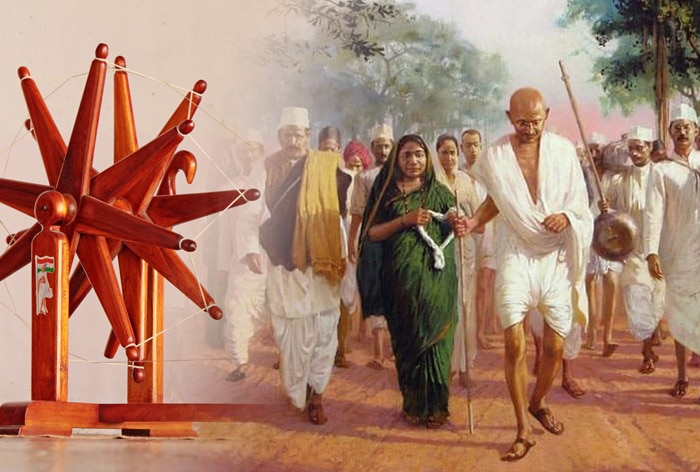Gandhi’ Jayanti 2023: Bapu’s fight against untouchability started during his childhood when his mother cautioned him not to touch a Shudra boy.
Gandhi Jayanti 2023: Mahatma Gandhi, lovingly known as Bapu, was not only a true patriot but also a leader who deeply believed in ethical politics. Gandhi’s contributions to the world extend beyond India’s borders, as he imparted the highest human values of truth and non-violence. Bapu’s principles and ideology continue to resonate with millions of people and influenced numerous prominent leaders across the globe. Today, the world marks the 154th anniversary of Bapu’s birth as the International Day of Non-violence, paying tribute to his enduring legacy. Despite several years of independence in the land of Gandhi, many of Bapu’s dreams remain unfulfilled. These include eradicating social issue like untouchability.
Bapu is recognised as Mahatma not solely for his struggle for India’s independence, but also for the values and ideologies he upheld, which earned him admiration and respect even from the Britishers. On his birth anniversary, let us know what steps Mahatma Gandhi took to eliminate social evils like untouchability.
Gandhi Jayanti 2023: Bapu’s Efforts To Eradicate Untouchability
Bapu’s fight against untouchability started during his childhood when his mother cautioned him not to touch a boy named Uka, who was responsible for cleaning their toilets. At the tender age of 12, Gandhi defied his mother’s admonitions and challenged the system she believed in.
“If I accidentally touched Uka, I was asked to perform ablutions, and though I naturally obeyed, it was not without smilingly protesting that untouchability was not sanctioned by religion…I told my mother that she was entirely wrong in considering physical contact with Uka as sinful,” Mahatma Gandhi recounted in his speech at the ‘Suppressed Classes Conference’ in Ahmedabad (Collected Works of Mahatma Gandhi, Vol 23, pg 42).
In 1915, when Mahatma Gandhi’s returned from South Africa, he founded the ‘Satyagraha Ashram’ in Ahmedabad to advance his principles and enlighten the community, even in the face of resistance from the local Vaishnavas.
In 1920, he ventured even further by asserting that his concept of ‘Swaraj,’ or self-rule, demanded the complete eradication of untouchability. He emphatically declared, “Swaraj holds no meaning if we persist in keeping a fifth of India subjugated, depriving them of the advantages of our national culture.”
Gandhi Jayanti 2023: When Bapu Coined ‘Harijan’
When India was fighting for its independence from the British, one big problem in society was untouchability. It was seen as wrong to sit, eat, or drink with manual scavengers, sweepers, Dalits and Maha Dalit castes. Mahatma Gandhi started his campaigns against this when he traveled around the country. He called the people of the “Chamar” community ‘Harijan,’ which means people of God, to show them respect in society. Gandhi believed that cleanliness was a holy virtue, and those who work as cleaners or practice it are like God’s people. “I do know that it [untouchability] is harmful both to spiritual and national good,” Gandhi wrote in 1936.
Gandhi Jayanti 2023: Bapu Cleaned Toilet To Kill Untouchability And To Set Example Of Equality
Bapu used to say, “How can it be that someone is considered inferior because of his caste, while someone bad is considered good?” One day, at Bapu’s Ashram in Sevagram, a person who did the work of cleaning left his job. Seeing this, Bapu thought that it wouldn’t be a better opportunity to remove this belief from people’s minds. He called all the people at the ashram and said, “You all know that the person who used to do the cleaning is not here. Let’s all come together and do this cleaning work.” Then, in front of everyone, he cleaned the toilets.
Gandhi Jayanti 2023: Legacy Of Mahatma’s Fast
Many have praised Gandhi’s peaceful protests and fasting for preventing the British from employing a ‘divide and rule’ strategy. Poet laureate Rabindranath Tagore said at the time: “It is worth sacrificing precious life for the sake of India’s unity and her integrity.”

